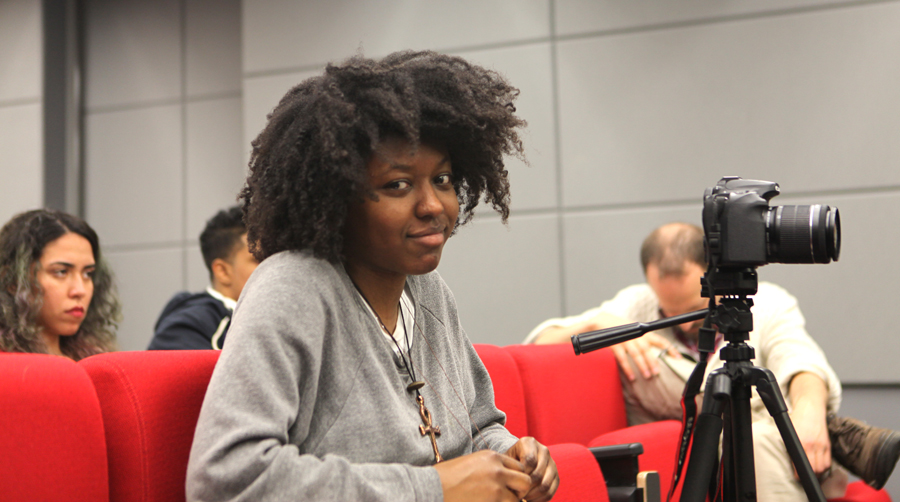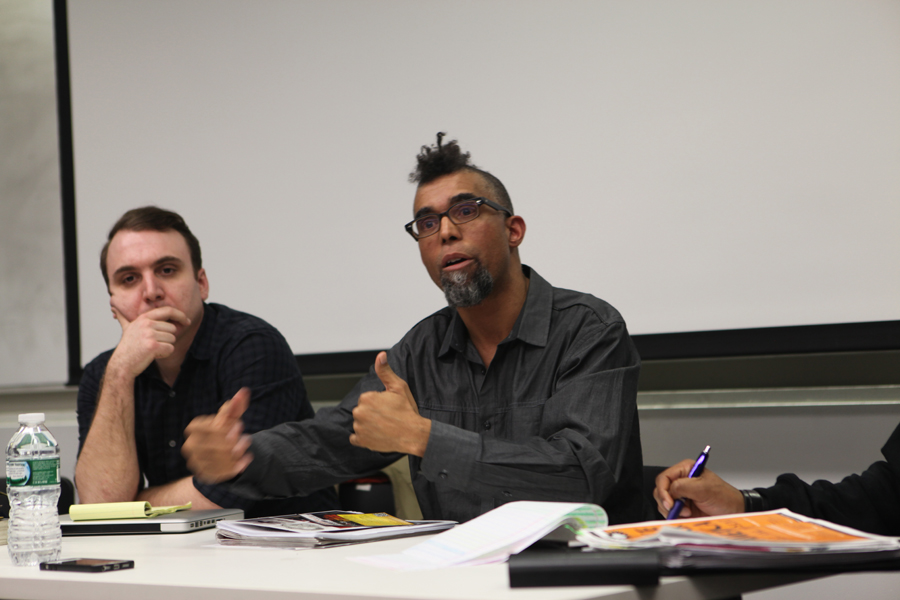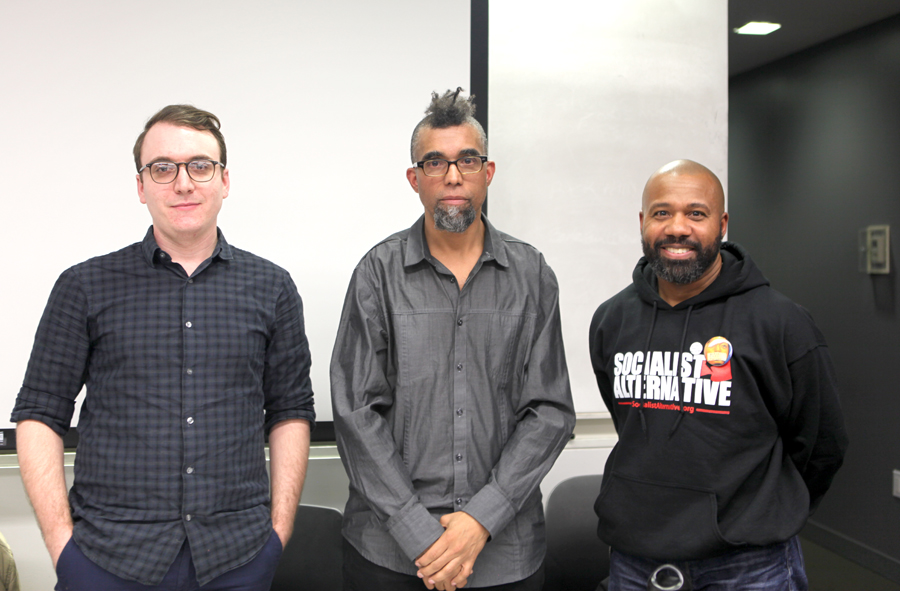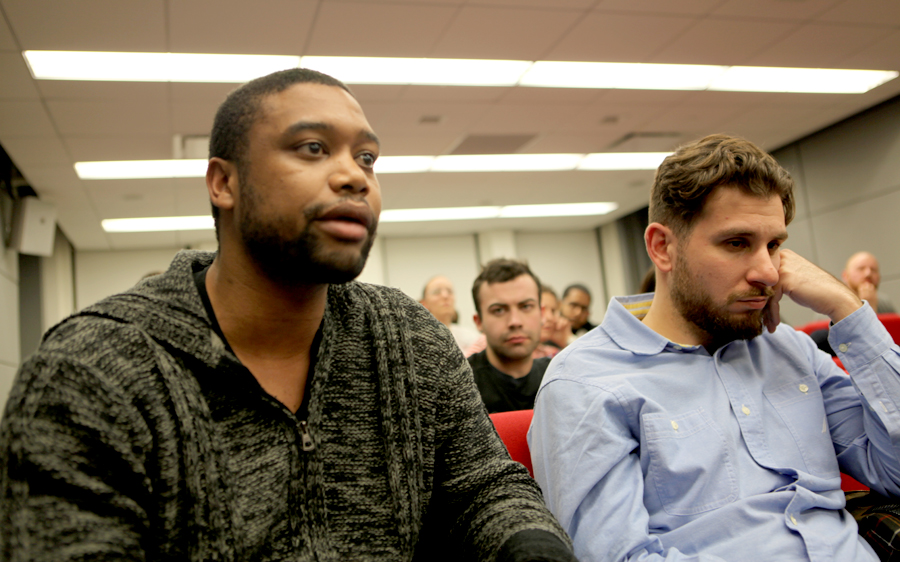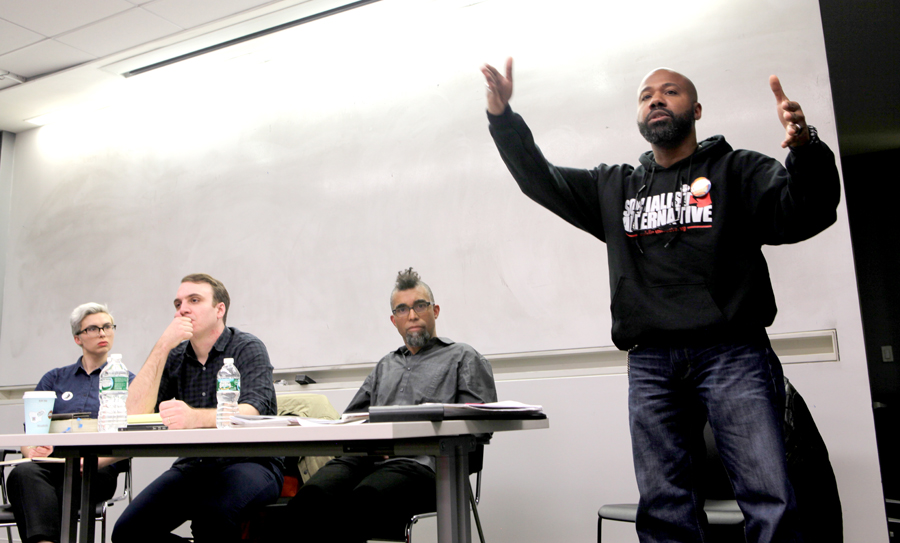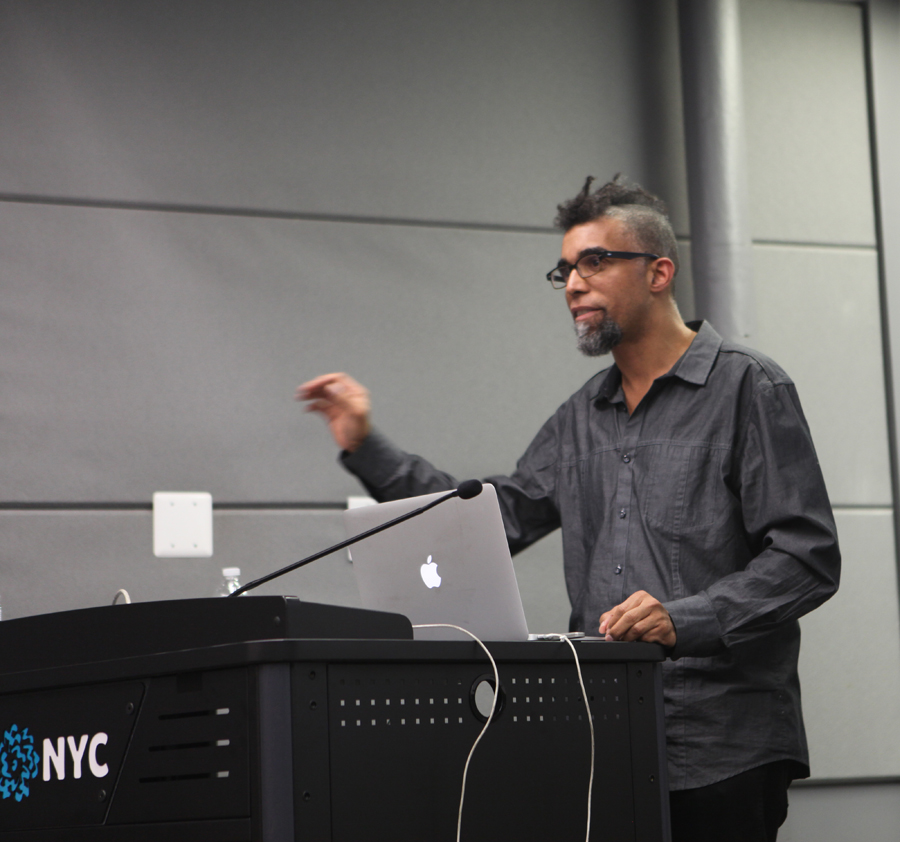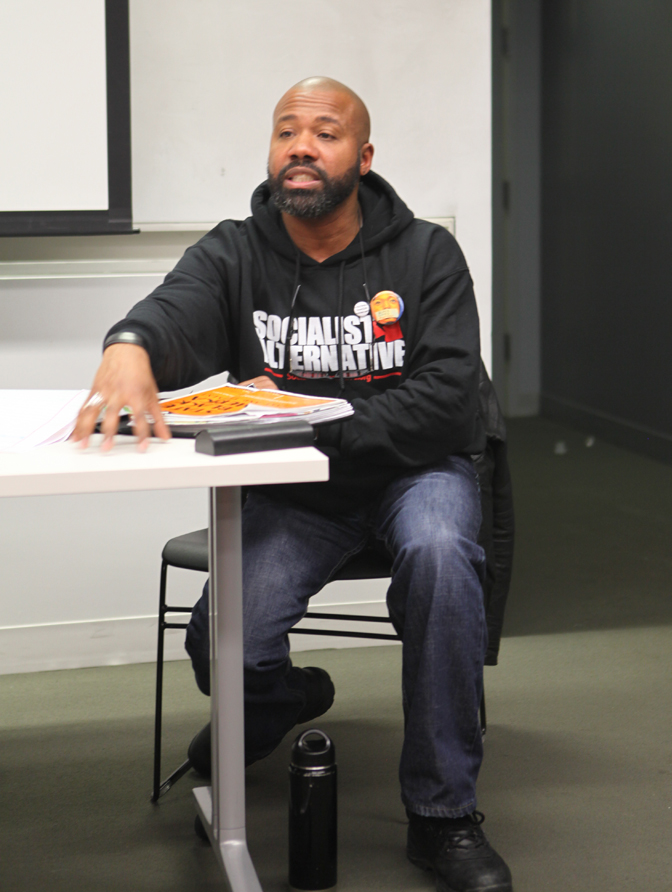Held at Loyola University on April 15, 2015.
Panelists:
-- David Mountain (London, UK)
-- Jocelyn Li (Halifax, Canada)
-- Sebastian Vetter (Vienna, Austria)
-- Shirin Hagner (Frankfurt, Germany)
While the academy is more liberal than the American mainstream, economic pressures, such as declining opportunities to succeed on the job market, have led to a general depoliticization of the recent generation, the “millennials.” In Europe, on the other hand, the academy still appears as a hotbed of student radicalism: occupations of university buildings across Europe in 2009, demonstrations in UK universities in 2010 to resist tuition hikes and spending cuts, and various protests calling for more democracy and less austerity throughout Europe, but particularly in Greece and Spain.
The Platypus Affiliated Society presents a round-table discussion with student activists from Europe and Canada who will share their views on recent protest movements in their countries. What issues have been prominent? What has been the relationship between student movements and traditional agents of social change, such as labor unions and social democratic or socialist parties? In the past, professors such as Herbert Marcuse played a significant role in radicalizing protesters. Whom do student activists regard today as sources of intellectual and political inspiration, and what does this influence look like?
We invite local students to share their own experiences with these international representatives, and to discuss the possibilities for a re-politicized student body in the United States.
Sponsored by the Loyola University Student Activities Fund, with the support of Loyola's Student Activities and Greek Affairs.
Hosted by the Platypus Affiliated Society in conjunction with
the SVA Black Student Union
Panelists:
Ben Blumberg (Platypus Affiliated Society)
Eljeer Hawkins (Socialist Alternative/CWI)
Dread Scott (Artist)
Moderated by: Allison Hewitt Ward (Platypus)
Introduced by: Tiffany Freeman (SVA Black Student Union)
11th March 2015
School of Visual Arts
136 West 21st Street
Room 418F
The widely publicized killings of black men by
police and the resulting movement with its slogan “Black Lives Matter” puts
back on the agenda of a beleaguered American Left a seemingly perennial
question, one that evokes a long history of struggle, longing, and
disappointment. With a black president in the White House having survived or co-opted the #Occupy Movement, the Black Question seems to pose a return to the old platitude that America is racist. At the same time, precisely because of recent history it seems necessary to resist a complacency that threatens to obscure the precise nature of the present, not to mention an adequate analysis of how the Left got where it is today. Such skepticism would appear doubly warranted in light of the fact that the Democrats seem way out in front of this movement, likely soon to have all the necessary police officials and the black vote duly lined up on their side. Given these circumstances and the dangers of yet another historical round of disappointment, another course in diminishing expectations and demobilization, now would seem an opportune moment to reflect
on how this movement might indeed be transformed into the herald of a genuine revival of the Left here in the United States, where it is so badly needed.
Speakers:
Boris Kagarlitsky: Transnational Institute
Mel Rothenberg: Chicago Political Economy Group
Christoph Lichtenberg: International Bolshevik Tendency
Last year marked the 25th anniversary of the 1989 revolutions—the ‘Autumn of Nations’ in the Soviet bloc. For an entire generation now of age, the USSR and the Cold War are only historical relics. 1989 is largely remembered as a decisive close to the Cold War contest between communism and capitalism—with the victory of the latter casting a seemingly damning verdict against Marxism as a form of politics. The planned economies based on collectivized property of these states were indicted as failures, and their totalitarian regimes called into question the very notion of working class rule. The fall of communism thus profoundly affected the Left’s ability to imagine the overcoming of capitalism, and the possibility of a classless society beyond it. But in passing into history, the meaning of 1989 can also be reconsidered.
The Platypus Affiliated Society wants to use this anniversary to reassess the question of how 1989 weighs on the present. What is the significance of 1989 in its historical context, and what is its relevance for Left politics today? This panel was held by the Platypus Affiliated Society on Feb. 17th, 2015 at NYU.
A discussion with Laurie Rojas and Richard Rubin on the release of The Platypus Review Reader held at the 2nd Annual European Conference of the Platypus Affiliated Society in Frankfurt.
Presented by the Platypus Affiliated Society at the University of Chicago, 5 February 2015
Whether it is the gruesome murder of school children in Peshawar or the brutal killing of editors of Charlie Hebdo, it is clear that our world is in the grip of militant Islam. But what is even more shocking is the response of the Left to these incidents. Mired in confusion, the contemporary Left has failed to comprehend the gravity of the current situation and continues to make confounding gestures towards the force of political Islam, liberal values, such as the freedom of speech, and above all, its own orientation toward the current political crisis. This teach-in will address the rise of political Islam as a consequence of the demise of the Left internationally.

